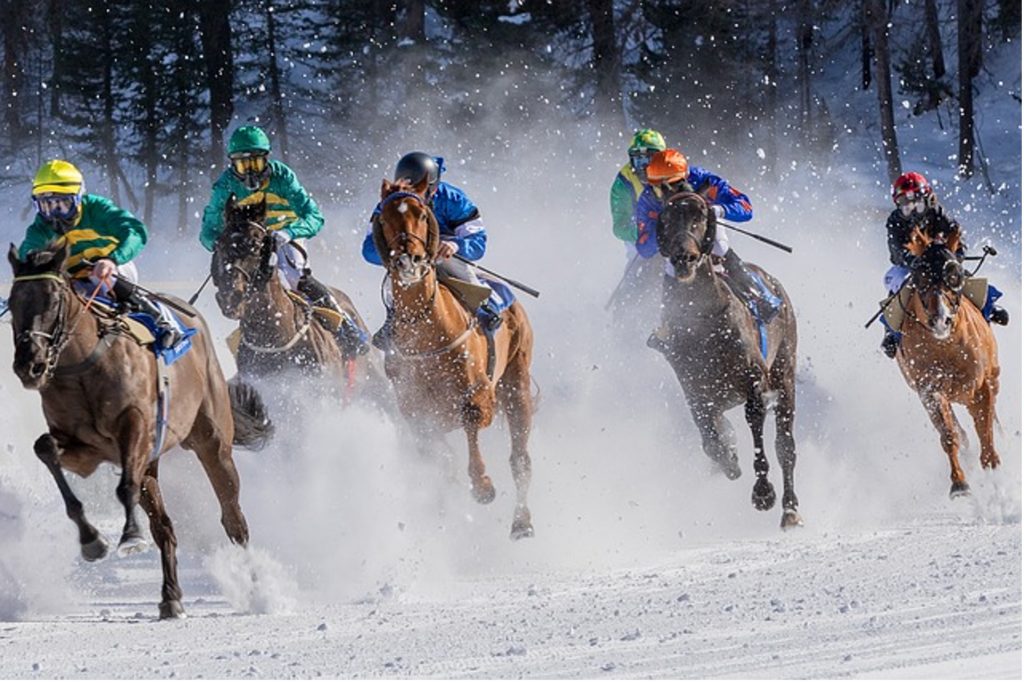Freddie Vazquez JR runs the Messenger Hill Farm which is a boutique concierge equestrian training facility. An avid rider and racer himself, Mr. Vazquez also maintains the horse news blog
Freddie Vazquez Equestrian Reviews. Below, Mr. Vazquez presents us with a state of the equine industry.
You may have heard that horse training as a niche has been flat in recent years. Animal rights protests, COVID-19 restrictions, and a decrease in trainers have all impacted the equine industry.
However, a new study is proving that horse trainers are doing better than we thought.
Here's the latest horse training news based on a recent study by American Horse Publications.
Comparative Data on US Equine Industry
An American Horse Publications (AHP) survey was conducted to discover how the industry was performing. The study considered the number of horses that are owned or managed in the US. The research also aimed to gather information about expectations horse trainers had for the industry in the future.
The results show that almost 76% of equestrian trainers, yard managers, or owners who responded to the survey confirmed they manage or own the same number of horses that they did in 2020. However, the study did reveal some challenges to the industry. Responses from the 7267 equestrians that took part in the study showed the main challenges include the increased costs of keeping horses and land use fees.
The study occurred from January to April 2021, with results coming out in September. Freddie Vazquez JR says that AHP did comparable surveys from 2009 to 2010, in 2012, in 2015 as well as in 2018. Their research shows that there's not as sharp of a decline in horse trainers as industry experts believed, and the number of people who cared for horses stayed relatively consistent throughout the last decade.
The big difference is that 10.4% of 2021 responders said they now manage or own more horses and feel greater financial pressure than in previous years.
Industry Expectations
Respondents were also asked about their expectations for future trends. About 73% said they expect to manage or own the same number of horses going forward. 9.7% said they expect their current numbers to decrease and will likely own/manage fewer horses next year.
This expectation shows that more people regard their circumstances as stable than those who responded in the 2018 survey.
Horse Ownership Age-related Statistics
The AHP results also showed that the respondents who expected the number of horses they own or manage to grow were those in the younger age groups. About 21.8% of respondents in the 18 to 24 years old category have more horses in their care than last year, while 5.4% of older respondents (65+) said they had more horses.
This trend is consistent with responses about future expectations, according to Freddie Vazquez JR . Around 31.1% in the 18 to 24 category said they expect to manage or own more horses in 2022. About 10.2% of 65+ shared this expectation.


The Cost of Keeping Horses
The survey showed unequivocally that
hay and concentrate feed costs have increased in recent years. It also showed that prices of veterinary (41%) and healthcare products (39%) have risen.
Respondents also said that barn maintenance and horse transportation costs had increased. They added that this rise in costs all around forces barns to increase their horse training, riding tuition, and stabling prices, even when they would prefer not to. This means even though the industry is displaying stability, costs are increasing.
About 60% of the respondents said they have endeavored to reduce expenditure in other areas of their lives to absorb the increase of horse care and related costs. Many also said they reduced the number of competitions they enter (22%), and others said they chose to supplement their income to help pay for their horses (23%).
Competition Participation
Study participants showed that they could expect to take part in 4.3 (average)
equestrian competitions in 2021. This is fewer than the 2018 study, which reported the expectation of attending five events.
The survey showed that over 45% of respondents had no plans to compete this year, which is higher than the 2018 study’s 38.7%. However, COVID-19 restrictions may be affecting these numbers.
Horse Training
The study did not detail whether riders are reducing the amount of training instruction they are still able to afford. However, anecdotal evidence suggests that people would rather spend money on continuing with their training programs than on entering competitions.
Other Considerations for the Equine Industry
Discusses also in Freddie Vazquez Equestrian Reviews, land use complications were listed as significant issues by 43% of the survey respondents. Otherwise, commonly mentioned issues in the “other” classification of the study include animal rights activists, liability, competition costs, and over-regulation.
Although there are several issues that affect the entire equine sector, some issues of particular concern are prevailing in specific areas. For example, zip code areas 4 and 7 had the highest percentage of equestrians who are using illegal medication for their performance horses. These regions also show evidence of ineffective welfare laws.
Conclusion
The AHP survey shows the equine industry is currently rebounding, with signs of growth amongst younger horsemen and women. It is possible that with fewer COVID-19 restrictions, more people will feel comfortable participating in competitions. However, the issue of rising costs may continue to be a trend in the industry in the years ahead regardless of the pandemic.

